Unit 6: (6.8) Solar Energy
1/8
There's no tags or description
Looks like no tags are added yet.
Name | Mastery | Learn | Test | Matching | Spaced |
|---|
No study sessions yet.
9 Terms
passive solar energy
Solar energy systems that collect the sun's energy without the use of mechanical or electrical devices.
- Solar cookers

passive solar design
Building construction techniques designed to take advantage of solar radiation to heat buildings in cold months, and block solar radiation in hot months.
- Deciduous shade trees
- Southern facing windows with roof overhang
- Double-paned windows
- Blinds
- Heat absorbing flooring materials
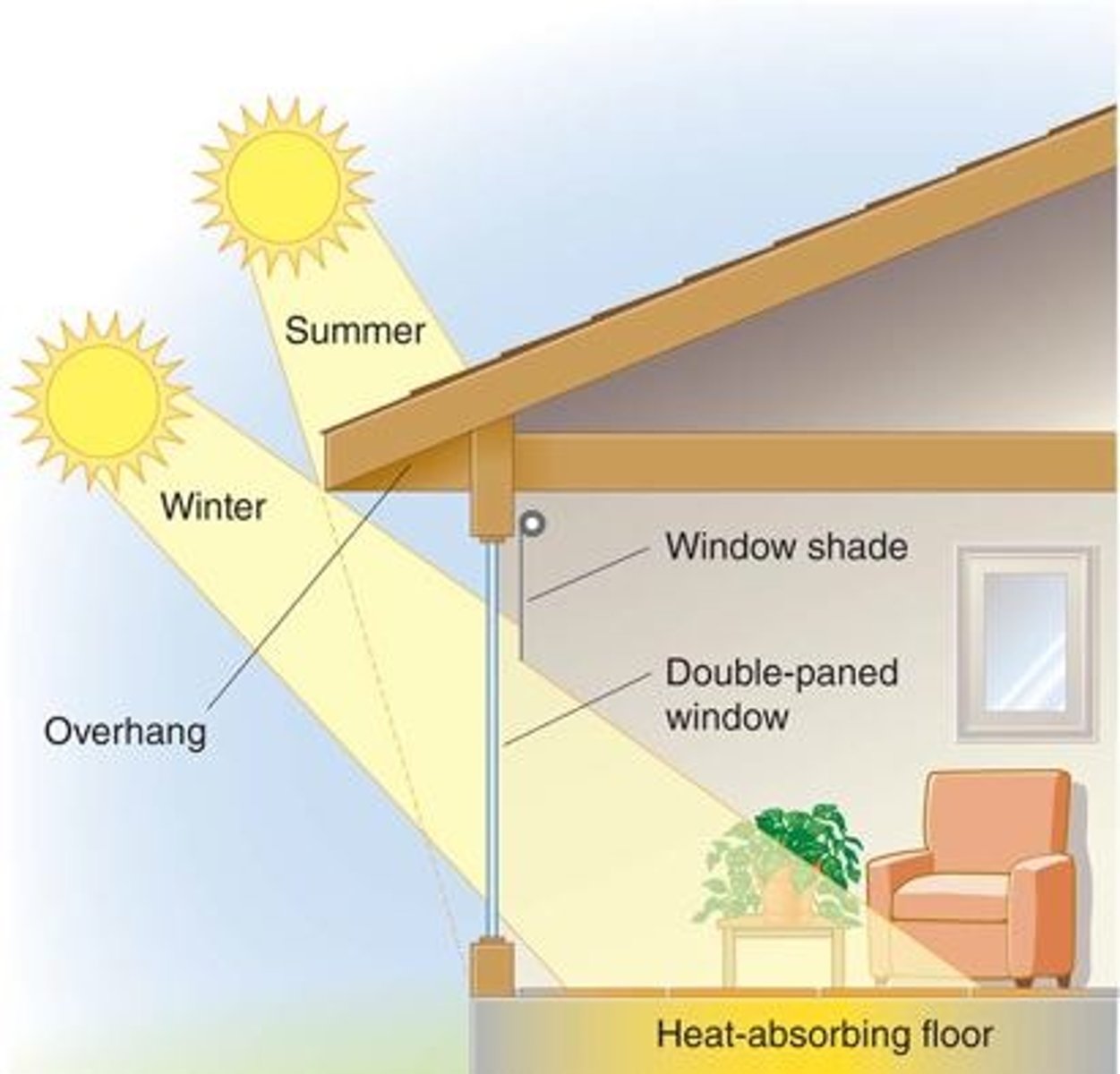
Active solar energy systems
Systems that collects solar energy through the use of mechanical or electrical devices such as photovoltaic cells or concentrated solar thermal power plants
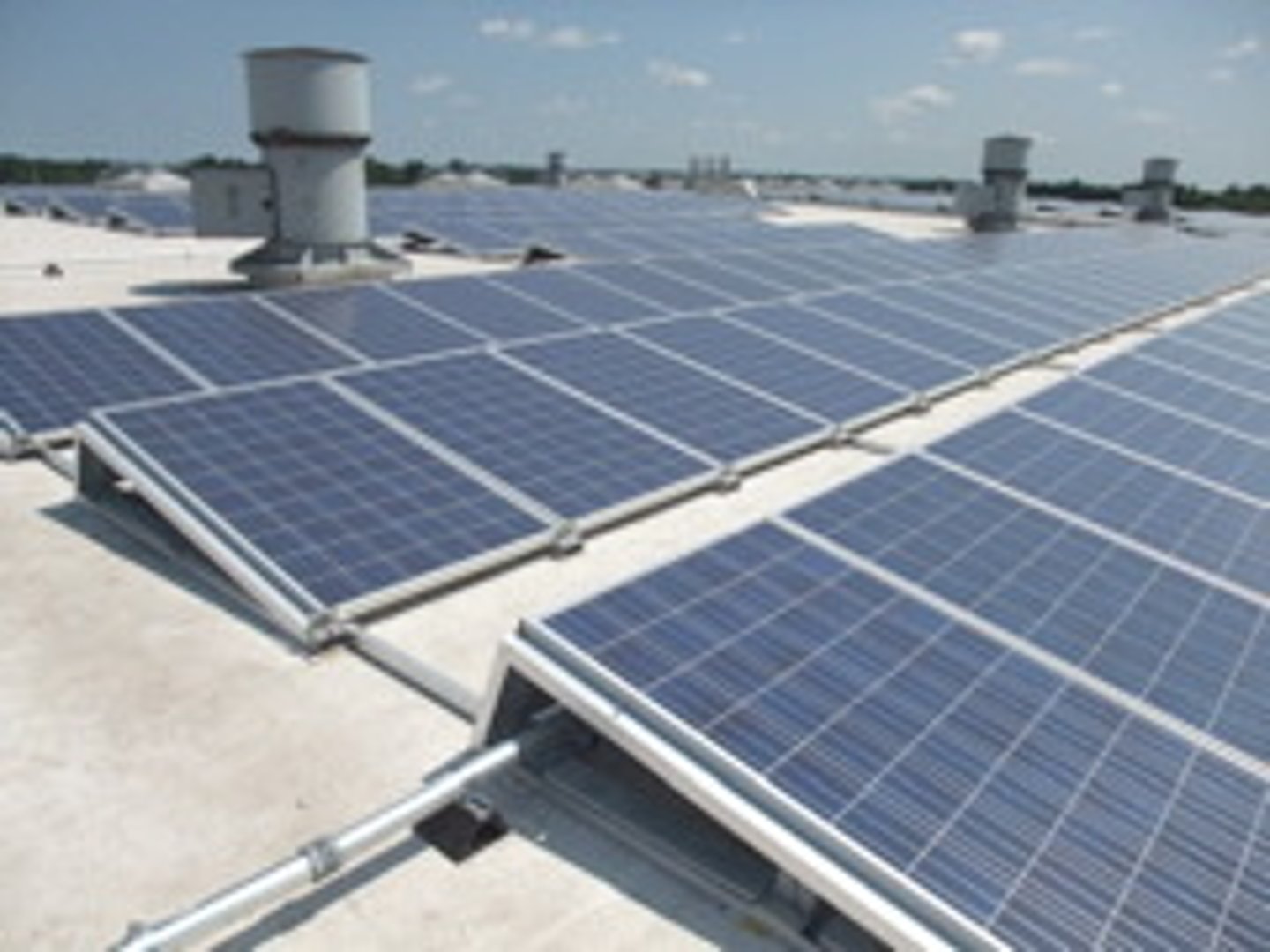
photovoltaic solar cells (solar pannels)
Pannels with semiconductor materials (like silicone) inside that emit low-voltage electrical currents when exposed to sunlight. This current is converted into a high-voltage, AC current that is the form of electricity homes and businesses can use
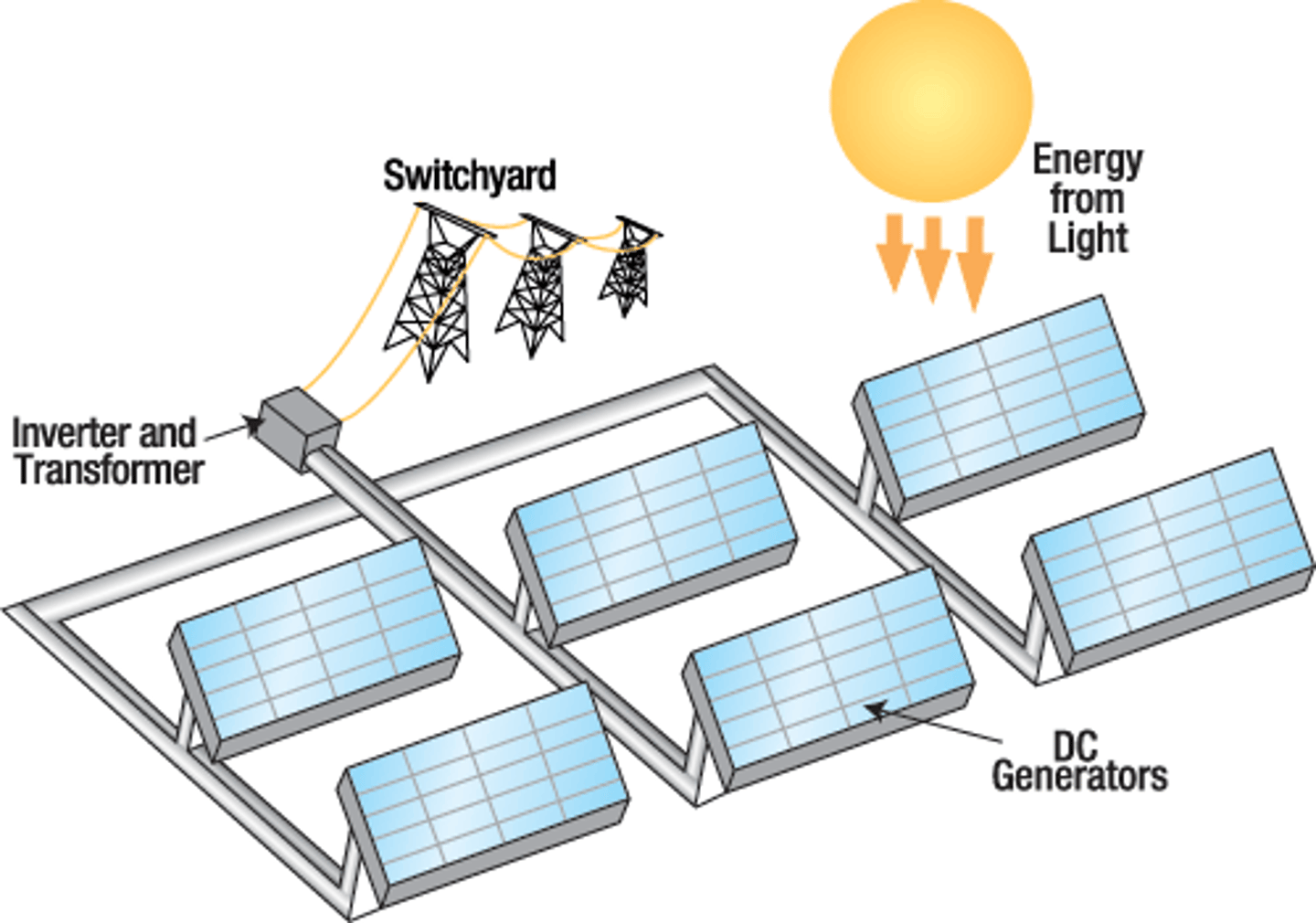
solar water heating systems
Use suns energy to heat a fluid (typically antifreeze in cold climates and water in warm climates) within closed loop which heats storage tank of water. Reduces the use of electricity or natural gas in a home's hot water heater
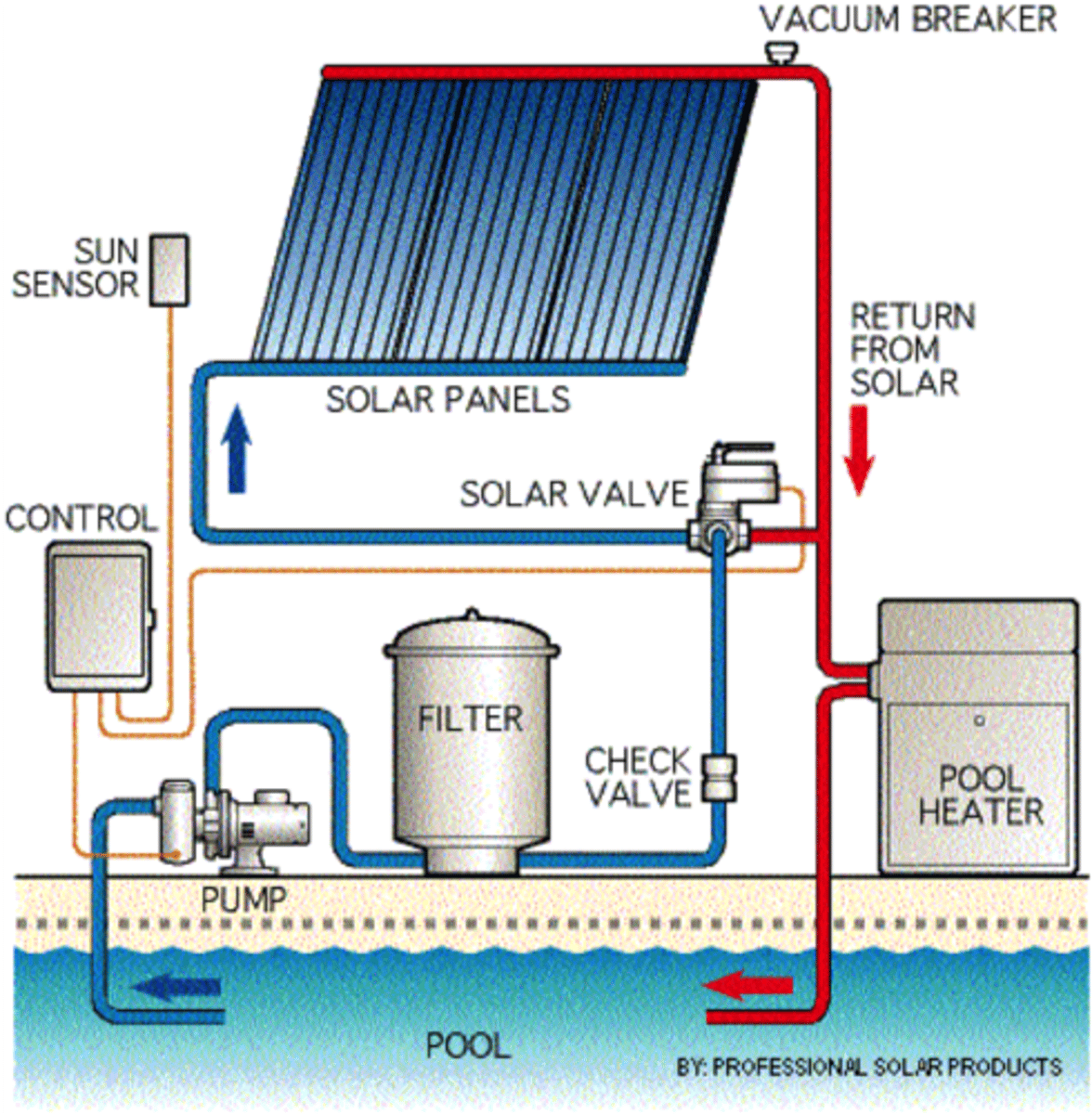
concentrated solar thermal
large mirror or lens arrays that concentrate sunlight on a central tower to heat specialized fluids that are then used to heat water into steam to run turbines to generate electricity
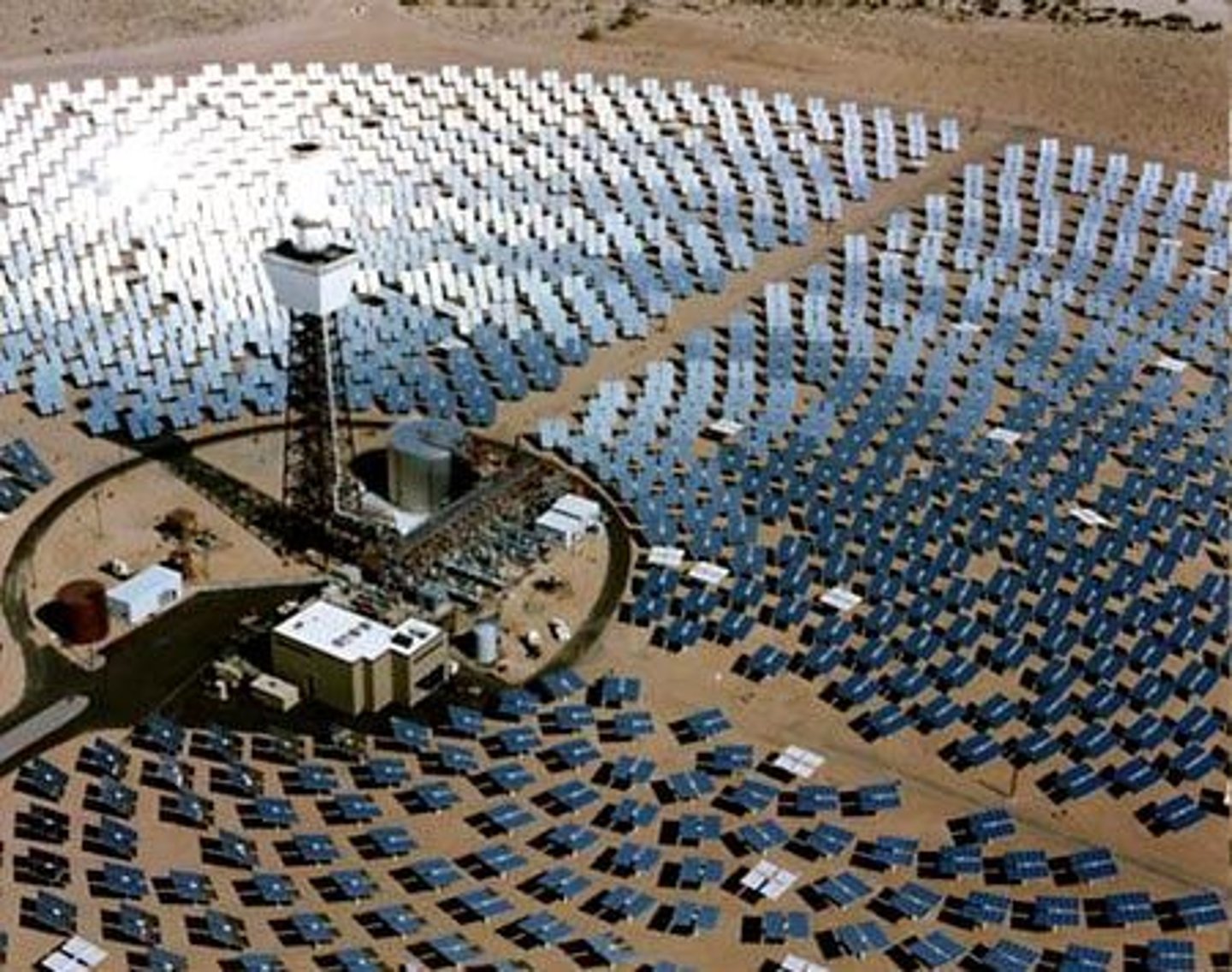
solar cookers
simple, portable ovens that use reflectors to focus sunlight onto food or water. especially common in developing nations or refugee camps
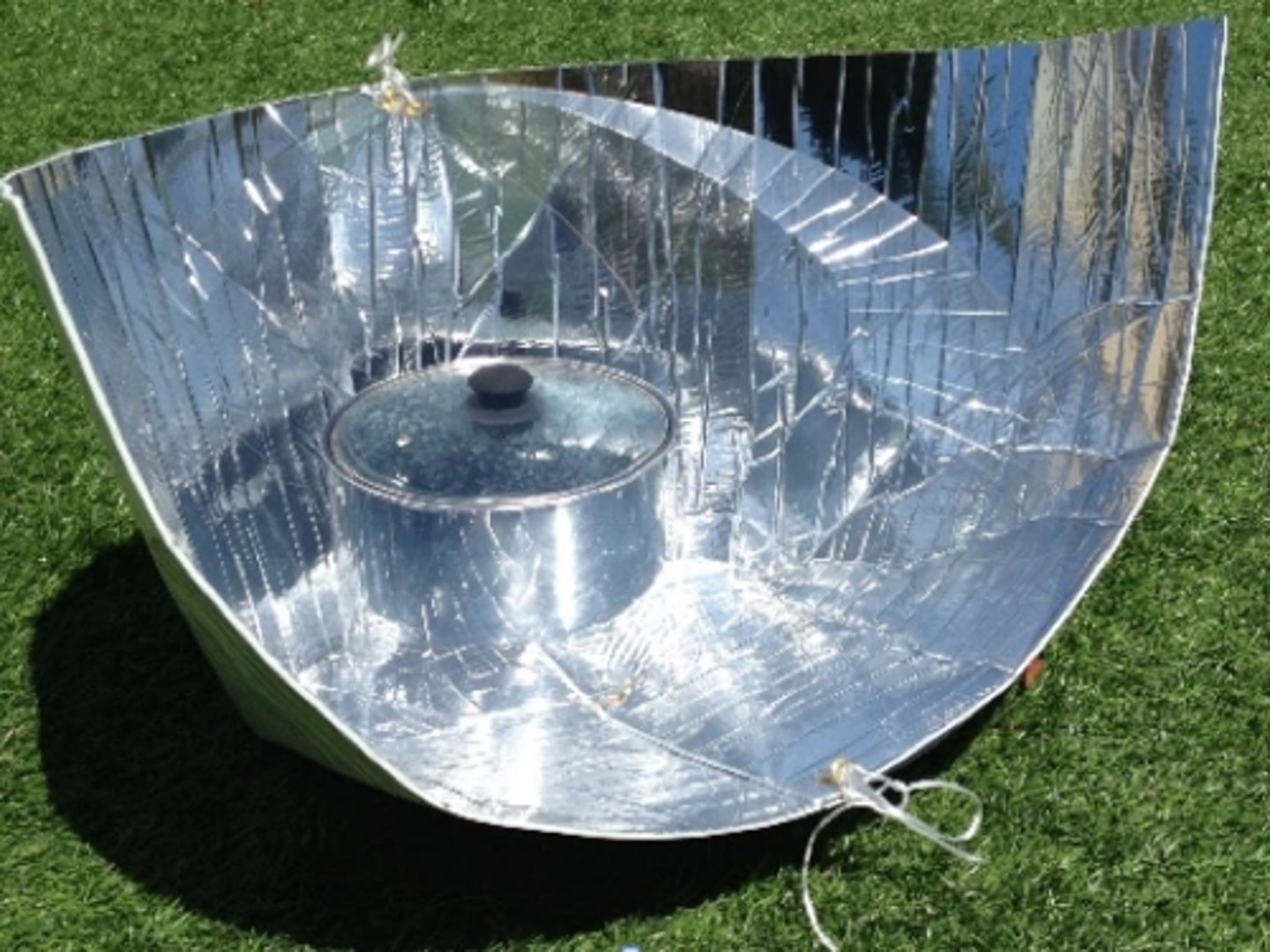
Pros of large scale solar energy
- No GHG emissions when generating electricity
- Typically set up in deserts which doesn't displace other land use
- Generate high amounts of electricity during times when demand is high (hot, middle of the day AC use)
- Excess electricity from home solar panels can be sold back to the utility company
- Subsidies or tax incentives from the gov. can lower the cost to home owners
Cons of large scale solar energy
- Electricity is only generated when sun is out
- Mining of semiconductor materials is still harmful
- Panels are initially expensive to manufacture and install
- batteries that store power contain toxic metals and are hard to dispose of
- Can fragment desert habitats where they're commonly built
- Large area of land required, relative to the amount of power generate